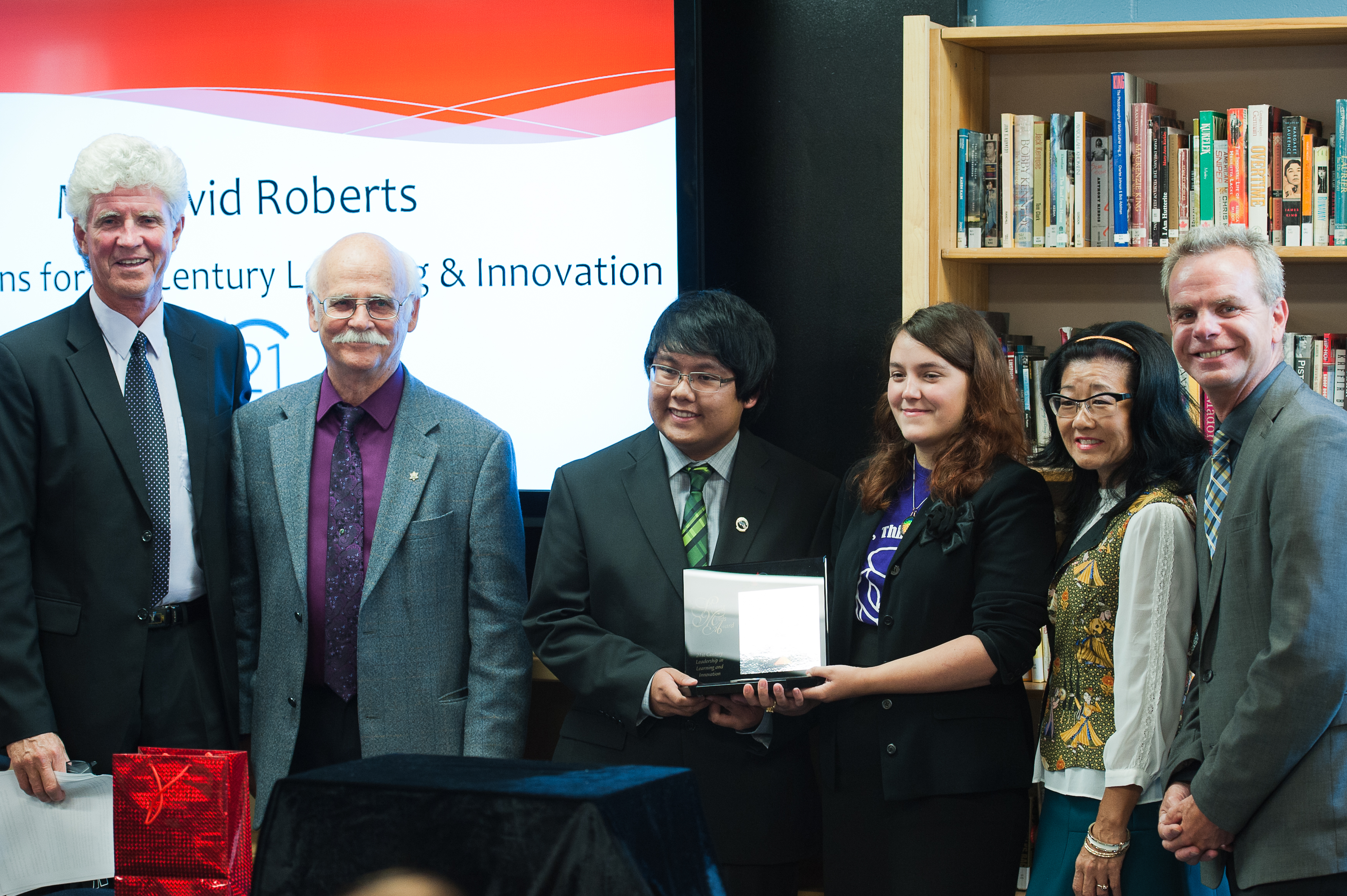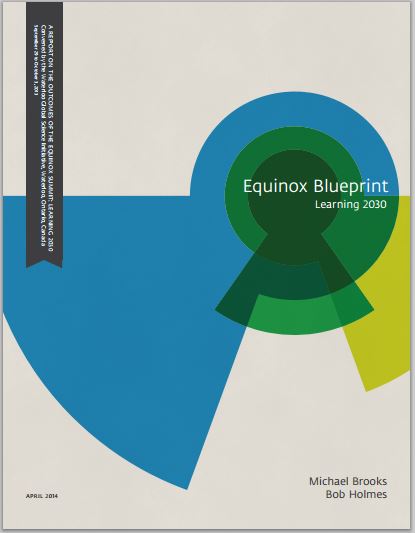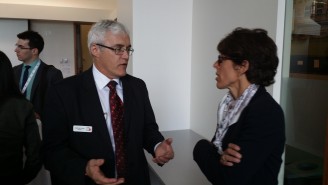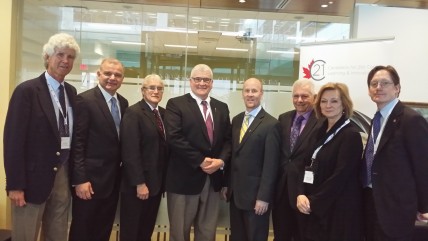 Sisler High School Receives C21 Shifting Minds Award for Excellence in Learning & Innovation
Sisler High School Receives C21 Shifting Minds Award for Excellence in Learning & Innovation
(L-R) David Roberts, C21 Canada; Dr. George Heshka; students receiving on behalf of the school (Stephanie and Gerrin); Karen Yamada, C21 Canada; Manitoba Minister of Education, Hon. James AllumManitoba, James Allum.
Education and Advanced Learning Minister James Allum was at Sisler High School today to congratulate students and staff being awarded the Shifting Minds National Award for Educational Technology from C21 Canada, a national not-for-profit organization that recognizes innovative leaders in education.



